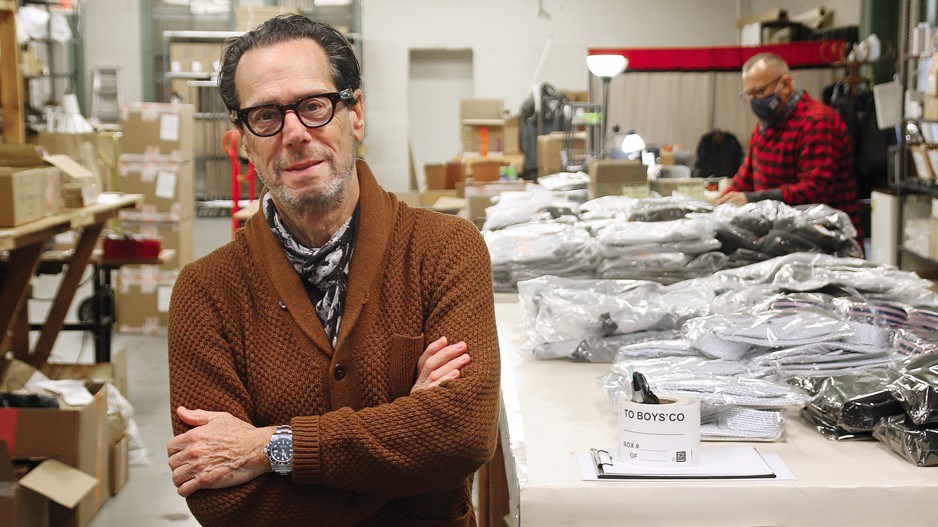COVID-19 has had an immeasurable impact on the retail sector, disrupting how people shop and what they want to buy – forcing retailers to adjust or suffer the consequences.
This uncertainty means slow-to-adjust retailers could find their operations lagging so badly that owners seek to liquidate.
Savvy deep-pocketed operators may see opportunity in the carnage and aim to acquire businesses that have valuable assets, such as those with robust e-commerce systems.
Retail analyst and Retail Insider owner Craig Patterson said a range of B.C. companies could be ripe for acquisition.
On the smaller side, there’s the 37-year-old, three-store Boys’ Co., which once had five stores and was part of a larger umbrella company that had 14 stores, including some branded Murray Goldman and Bus Stop.
Patterson believes Boys’ Co. is an attractive acquisition target because it has an established brand in B.C. and its owner, David Goldman, now in his 70s, may want to retire.
Goldman would not say if he is looking to retire or sell the venture, but he told BIV, “If someone came along and wanted to have a discussion, I wouldn’t say no to a meeting with them – probably a Zoom meeting.”
While Boys’ Co.’s stores are in malls – Coquitlam Centre, Metropolis at Metrotown and Guildford Town Centre – and mall traffic has taken a hit, Goldman said mall owners are “very flexible” with lease rates and that they like to have independent retailers as tenants because it helps make the malls distinctive.
Another B.C. fashion retailer that Patterson said might be ripe for an acquisition is the nine-store Plenty chain, because the company had “struggled a bit” during the pandemic.
Larger acquisition targets could include the fast-growing, e-commerce furniture seller Article or the long-established, Richmond-based London Drugs, which has operations across Western Canada, Patterson said.
The 10-year-old Article is desirable because it is a pure-play, e-commerce company that has been rapidly doubling and tripling revenue, ranking high on numerous lists of the fastest-growing companies and expanding sales across the U.S.
Amazon.com (Nasdaq:AMZN) would have the resources to buy Article, as might its biggest competitor, Patterson said.
“Remember that Walmart bought Shoes.com [assets after the e-commerce shoe-seller went into creditor protection], and that company was founded in Vancouver.”
While those global, retail behemoths would have the capital to make the acquisition, Patterson said Article founders likely would want to achieve more growth before exiting.
Article CEO and co-founder Aamir Baig was not available to speak with BIV but the company sent a statement saying that "at this time, mergers and acquisitions are not on the horizon for Article."
London Drugs would be a desirable acquisition for the Jim Pattison Group, Patterson said, because the public has affinity with the London Drugs brand and a consolidation would provide operational efficiencies and chances for cross-promotions throughout Western Canada.
He added that the acquisition would provide a larger platform for Pattison to sell a wide range of its own products.
Sam Bass founded London Drugs in 1945 and sold it to Daylin Corp., which in turn sold it to current owner H.Y. Louie Co. in 1976.
Hok Yat Louie founded a general store in Vancouver’s Chinatown in 1903, and his son Tong Louie expanded the company significantly, both organically and by acquisition.
“There have been no discussions to sell London Drugs in the past, and there are no discussions or contemplation at this time,” London Drugs told BIV in a statement. “This rumour of being an acquisition target comes and goes, typically when the large grocery or pharmacy chains embark on acquisition strategies.”
London Drugs then pointed to examples of those consolidations, such as when Loblaw Cos. Ltd. (TSX:L) acquired Shoppers Drug Mart, when Metro Inc. (TSX:MRU) acquired the Jean Coutu pharmacy chain and when McKesson Corp. (NYSE:MCK) acquired Rexall Health.
The Jim Pattison Group has shown a penchant for buying Vancouver retailers that sell groceries and consumer staples. For example, it bought Meinhardt Fine Foods in 2013 and Choices Markets in 2018. It recently merged its grocery divisions into the newly formed Pattison Food Group. •




